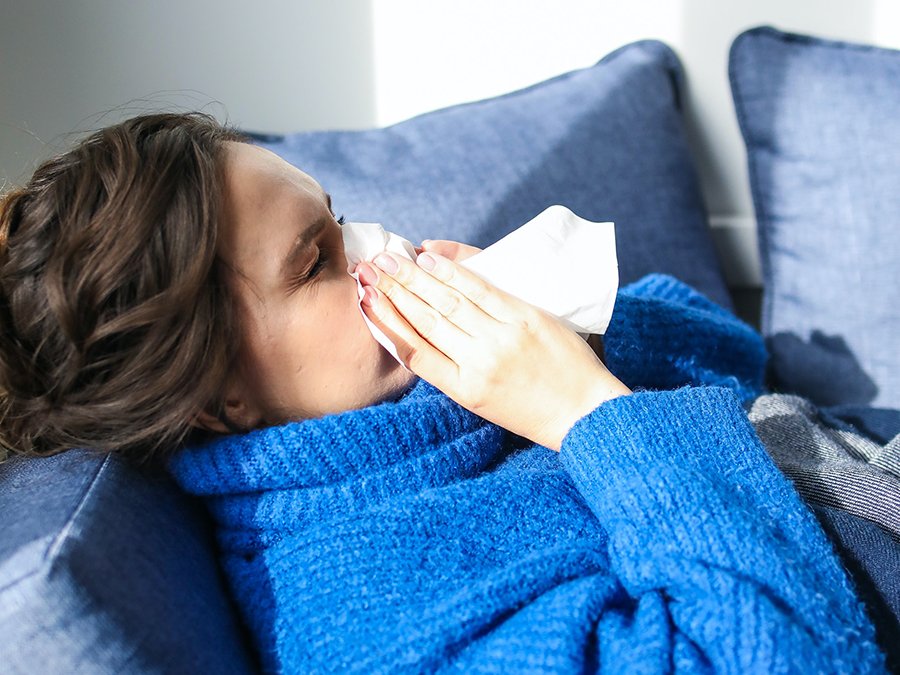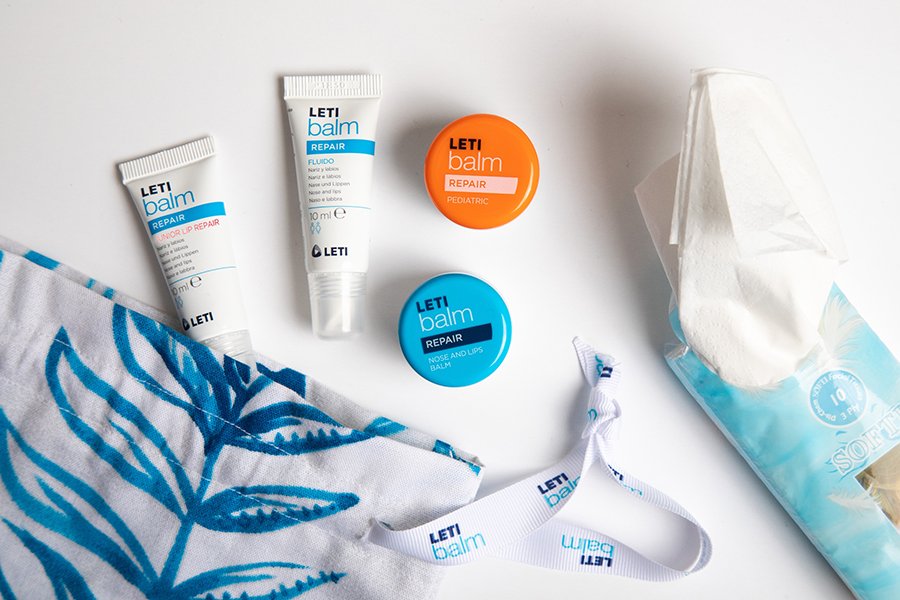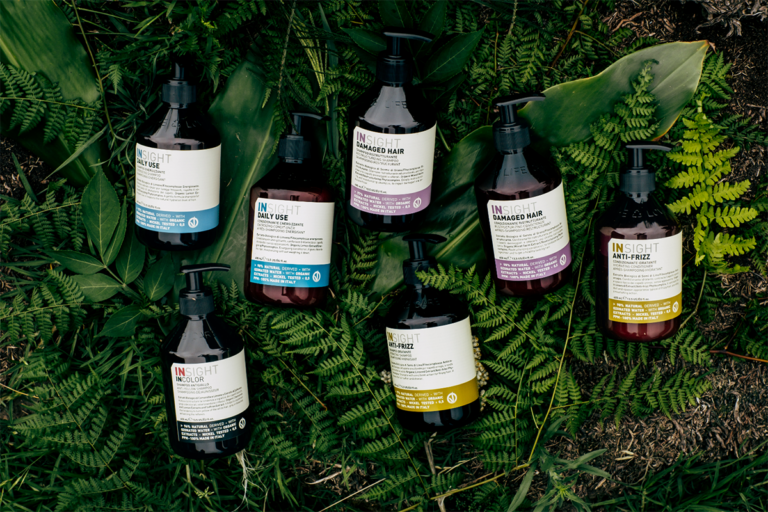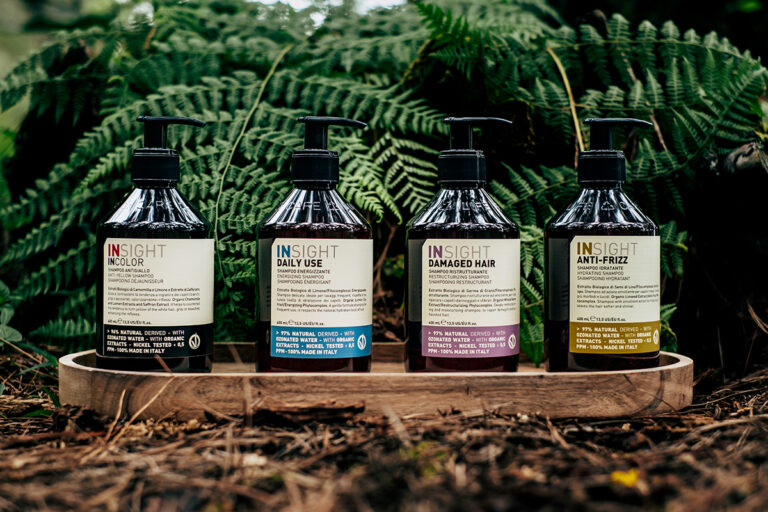
Winter is traditionally the season that takes the greatest toll on the nose and lips – with dry air, cooler weather and colds or flu causing redness and inflammation. Wearing a mask for extended periods can exacerbate the situation and has been shown to cause cheilitis – dry, cracked lips – particularly for healthcare workers, who wear masks for prolonged periods.
Cape Town-based dermatologist Dr Lauren Knight (give her a follow on Instagram here), explains how the skin changes during colder weather. “The cold air and low humidity leave the skin feeling drier, rougher and less supple during the cooler months. As the skin of the mouth and nose is thinner, it has less reserve when the season changes, making it more susceptible to the damage that can occur. Add to this, watery mucous with frequent nose blowing from a cold, the flu or not to mention Covid-19 which leaves this are more exposed and our poor nose and lip area doesn’t stand a chance.”
How masks affect the nose and lips
According to Dr Knight, the constant wearing of a mask changes the skin’s environment and makes it more prone to skin issues. “There is a relative increase in temperature and humidity which generates a change in the skin’s microbiome (the healthy bacteria which live on our skin helping to protect it) which can bring about inflammatory changes on the skin, with the risk of infection, potentially leading to acne flare-ups, oral candida or even rosacea.”
“The increase in temperature and humidity under the mask also serves to dry the lips. This, combined with the natural drying out of the lips in the cooler months coupled with the fact that mask-wearing generally results in less water drinking throughout the day, ultimately leads to dry chapped lips.
Cheilitis, a medical term for inflammation of the lips, characterised by dryness, redness, cracking and even itching, has been reported as a consequence of mask-wearing by healthcare workers. “It typically presents with symptoms of tightness and chapping, followed by burning sensation and itching. The most common signs are flaking, scaling and swelling.”
7 ways to protect your lips
Whether the cause is the cold, wearing a mask, or a combination of the two, Dr Knight shares seven ways to protect your lips:
1) Choose the right type of mask. Light cotton or silk create less friction and are less likely to irritate the skin.
2) Stay hydrated. Increased humidity under the mask increases water loss, resulting in dry, cracked lips.
3) Protect the lips with a lubricating barrier that helps lock natural moisturisers in the lips. Apply regularly.
4) Avoid licking your lips, this can exacerbate the problem. “As the saliva evaporates it takes the moisture out of lip tissue. Furthermore, bacteria in saliva can irritate the skin and enzymes in saliva can break down the oils or moisturisers in your lip balm.”
5) Gently exfoliate. “Exfoliators should increase cell turnover and eliminate dead skin without upsetting the balance of natural oils. Use gentle exfoliation weekly – you will notice smoother lips that are more able to absorb moisturising ingredients in any products you apply”.
6) Apply your lip balm or a treatment overnight. “During the day, our skin is busy fighting off potential irritants, UVB/UVA rays etc. At night the focus is on recovery and regeneration and products applied at night can penetrate better for an enhanced effect.”
7) Avoid matte lipsticks. “The lack of oils or emollients make matte lipsticks more drying which can aggravate chapped lips.”
With hundreds of lip balms on the market, how do know which to choose? Dr Knight says that any moisturising balm will help protect the skin. She recommends looking for one that contains petroleum jelly, castor oil, shea or cocoa butter and vitamin E.

Letibalm is the only balm available in South Africa specifically formulated to protect and relieve the nose and lips. It contains natural and active ingredients including the ancient healing herb centella asiatica, nourishing cocoa butter and vitamin E.
“Letibalm works better than any other balm I have tried,” says Dirna Grobblelaar, Ivohealth’s oral hygiene advisor, who uses it on her children and her patients. “It is wonderfully soothing. Apply regularly, several times a day, including before and after each time you blow your nose.” For practical advice on oral health and caring for your mouth check out the Ivohealth blog.



